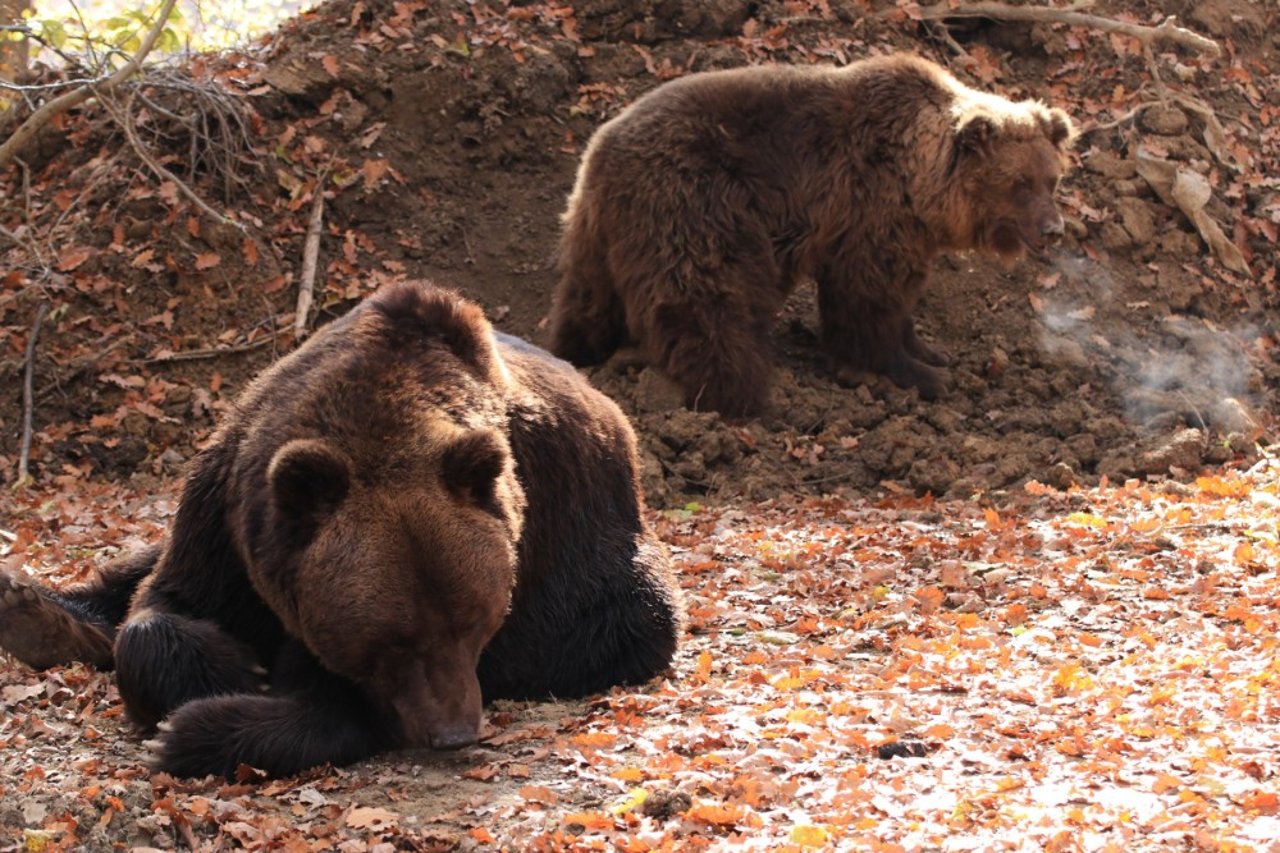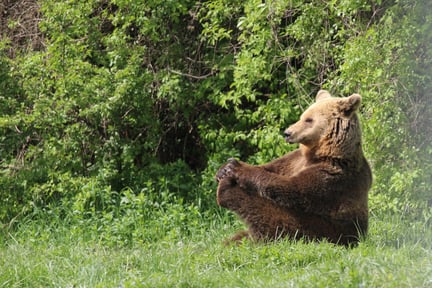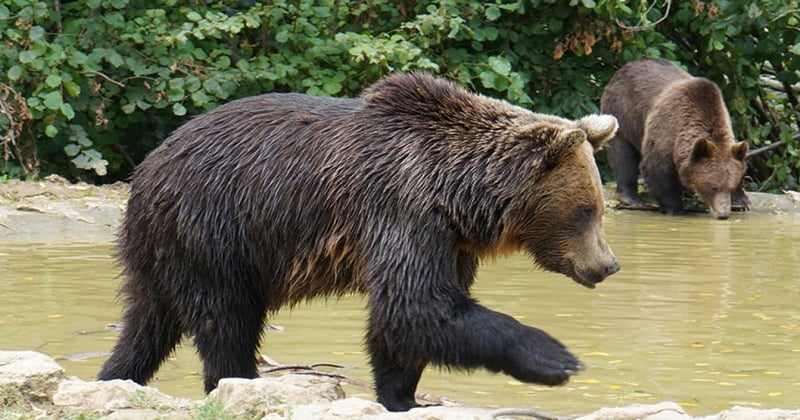
Explore 11 cool and surprising facts about bears, revealing their remarkable sentience through their intelligence, tool use, social bonds, adaptive behaviour, and resilience in the face of adversity!
1. Bears have the largest relative brain size of any carnivore! 🧠
2. Wild brown bears use rocks as a tool to scratch an itchy spot.
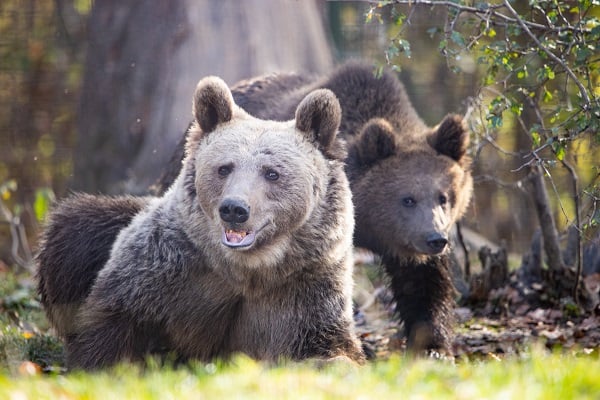 Daria and one of her cubs, rescued bears at Libearty bear sanctuary (Photo: AMP)
Daria and one of her cubs, rescued bears at Libearty bear sanctuary (Photo: AMP)
3. Black bear cubs do as their mothers do!
A study has shown that bears reared in the wild forage independently whereas bears reared by mothers who typically forage on food made available by humans adopt their mother’s foraging style.
4. Bears can develop strong attachments to other bears.
Following the death of his sister, an 18-year-old captive male brown bear only slept for a third of the time he did before, and spent more time inactive, compared with when his sister was alive. It is likely that the two had developed a close bond, and the loss was greatly felt.
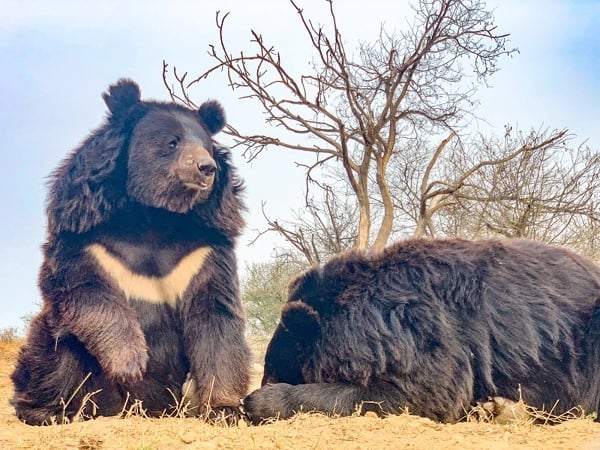 Two rescued bear friends at Balkasar Sanctuary (Photo: BRC)
Two rescued bear friends at Balkasar Sanctuary (Photo: BRC)
5. Brown bears know they are being hunted.
Solitary bears subject to hunting change their usual activity pattern to increase their safety and outsmart the hunters!
6. Play behaviour is key to surviving in the wild.
The more that brown bear cubs play, the more likely they are to survive to adult independence. Researchers found that this was unaffected by other factors such as food, maternal characteristics, and health, suggesting that lots of play is essential for growing bears to reach independence.
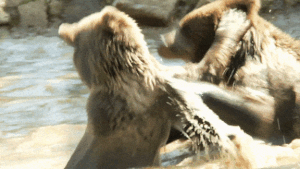
Rescued bears at Libearty sanctuary play-wrestling!
7. Brown bears use their play-face, an open-mouth grin, to tell others they want to play.
8. American black bears can count; distinguishing between large and small numbers of dots at a success level similar to monkeys.
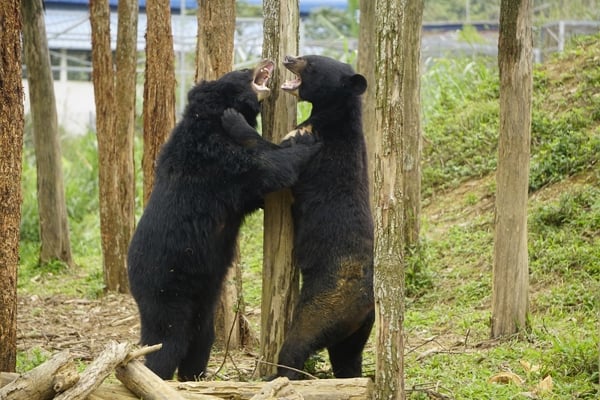 Bears rescued from bear bile farming playing at FOUR PAWS sanctuary. (Photo: FOUR PAWS Vietnam)
Bears rescued from bear bile farming playing at FOUR PAWS sanctuary. (Photo: FOUR PAWS Vietnam)
9. Disabled bears rescued from bear bile farms adapt well to living in a sanctuary with other bears despite their previous experiences.
10. Blind bears, rescued from bear bile farms use touch to find their way around the sanctuary; using their paws to find footholds for climbing and feeling for changes in the ground to avoid colliding with fences.
Alisa (back) is blind, but that doesn’t hold her back from living her best life at Libearty sanctuary with her best friend Timka (front).
11. Amputee bears rescued from bear bile farms easily become proficient climbers, holding onto tree trunks by squeezing them with their partially amputated forelimbs, despite having no claws.
🐻
Support rescued bears in sanctuary
Your generosity supports the feeding and care of the formerly abused bears at Libearty bear sanctuary!
Bear sanctuaries
These sites offer large natural habitats and expert care for rescued bears to live out their lives in peace.
